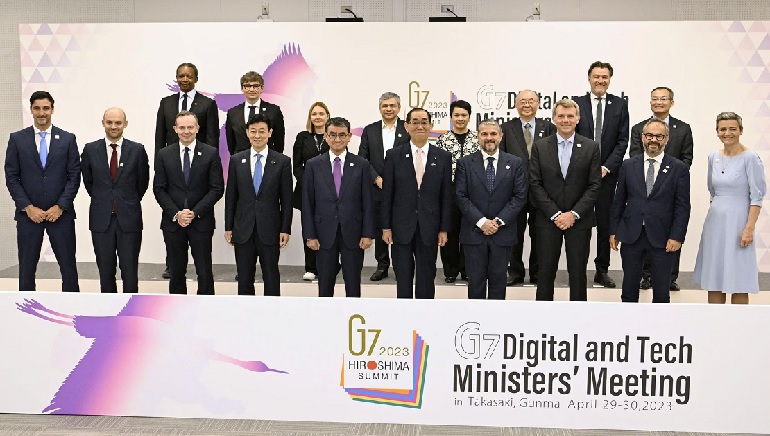Group of Seven (G7) advanced nations should adopt “risk-based” regulation on artificial intelligence, their digital ministers agreed on April 30. However, the ministers said that such regulation should also “preserve an open and enabling environment” for the development of AI technologies and be based on democratic values.
The top tech officials from G7 – Britain, Canada, the EU, France, Germany, Italy, Japan and the United States – met for G7 Digital and Tech Ministers’ Meeting in Takasaki, a city about 100 km northwest of Tokyo, Japan, on April 29-30. In a joint statement issued at the end of a two-day meeting, the digital and technology ministers recognised that “policy instruments to achieve the common vision and goal of trustworthy AI may vary across G7 members.” The agreement sets a landmark for how major countries govern AI amid privacy concerns and security risks.
European lawmakers have been pushing for an AI Act to enforce rules on emerging tools such as ChatGPT. “The conclusions of this G7 meeting show that we are definitely not alone in this,” European Commission Executive Vice President Margrethe Vestager said in an interview ahead of the agreement.
Governments have been led by the popularity of generative AI tools such as ChatGPT, a chatbot developed by Microsoft Corp-backed OpenAI that has become the fastest-growing app in history since its November launch.
In the statement, the block said that it plans to convene future discussions on generative AI, which could include topics such as governance, how to safeguard intellectual property rights such as copyright, promote transparency, address disinformation like information manipulation by foreign forces.















